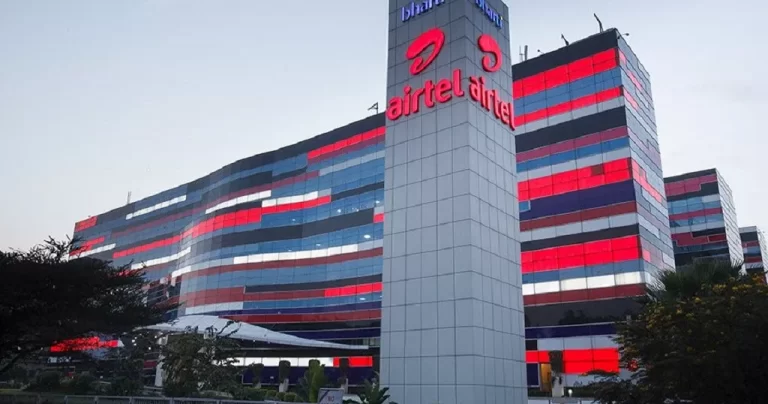In its latest 9M 2024 financial report, Airtel Africa disclosed a negative Basic EPS of (1.6 cents) and announced its intention to initiate a share buyback program of up to $100 million.
Addressing the share buyback, Group CEO Olusegun Ogunsanya provided insight, stating,
“In light of our consistent strong operating performance and given current leverage, the Board intends to launch a share buy-back programme of up to $100m, starting early March 2024 over a 12-month period.”
The relationship between earnings per share and share buybacks is intricate and can influence a company’s financial metrics, shareholder returns, and market perception.
When a company buys back its shares in the market, it reduces the number of shares outstanding.
Since EPS is calculated by dividing the net income available to common shareholders by the number of outstanding shares, a reduction in the number of shares outstanding due to buybacks can increase the EPS, all else being equal.
This is because the same amount of earnings is now spread across a smaller number of shares.
A review of the company’s financials reveals that prior to the negative EPS reported in the 9M 2024 financial year, both EPS before exceptional items and Basic EPS demonstrated consistency and growth
The recent decline in EPS before exceptional items and negative basic EPS reported represent a departure from the company’s historical trend in basic EPS.
According to the released financial statements, the EPS before exceptional items stood at 7.1 cents, indicating a decline of 34.6% compared to the previous period, while Basic EPS experienced a substantial decrease from 12.5 cents in the prior period to negative (1.6 cents), primarily due to substantial derivative and foreign exchange losses.
This decline contrasts with the compound annual growth rate (CAGR) of 14.5% observed over the past four years.
From the foregoing, while it could be plausible to argue that the decline in EPS and the expectation of further decline could have influenced the decision to implement a share buyback program, it’s also possible that the company perceives its shares as undervalued in the market.
Initiating a share buyback program may serve as a strategic move by the company to express confidence in its long-term prospects and to bolster shareholder value.
Despite this, a look at the company’s stock price reveals limited growth in recent periods.
In the preceding year, its year-to-date gain of 15.41% trailed NGXASI’s 45.9% increase. Similarly, in the current year, its 5.99% gain falls short of NGXASI’s 35.38% year-to-date increase.
Since the release of its 9M 2024 FY results and the announcement of a share buyback plan, the stock price has remained relatively stable.
The minimal movement observed in the company’s stock price suggests that investors are exercising caution concerning the company’s future performance.
Investors may have interpreted the 9M performance as below par and could be awaiting indications of improvement in the company’s financial performance before adjusting their valuation.
Currently, the company’s stock is trading at a trailing earnings multiple of 37.94x, exceeding that of its major peer, MTN Nigeria, which stands at 25.43x. This could indicate that the market perceives the company as being valued at a premium, or it may suggest that investors view the company’s stock as overvalued relative to its earnings potential.
However, the critical challenge for the company lies in navigating through the exceptional item, attributed by the company to substantial derivative and foreign exchange losses, which are adversely affecting the bottom line. These losses even resulted in a 1.4% decline in revenue in reported currency, as outlined in the 9M report
The company has demonstrated resilience and consistency in its expansion efforts for growth, which is anticipated to bolster revenue, as evidenced by its capital expenditure (CAPEX) over the years.
In the 2023 financial year, the company allocated $748 billion to CAPEX, marking a 14% increase from the $656 million spent in 2022.
The current year’s CAPEX guidance of $800 million to $825 million reaffirms the company’s dedication to investing in future growth initiatives. To meet this guidance, the company will need to allocate an additional $306 million to $356 million towards capital expenditure
However, implementing a share buyback program reduces the company’s cash reserves, which could potentially limit its ability to fund CAPEX projects and other strategic initiatives in the future.
The company indicated in the financial report that operating free cash flow was $1,414 million, declining by 3.1% due to lower EBITDA and higher CAPEX during the period.
Meanwhile, leverage improved from 1.4x in the prior period to 1.3x. However, it’s essential to note that the EBITDA used to calculate the leverage ratio of 1.3x is based on the last 12 months to December 2023 and, therefore, does not fully incorporate the impact from the devaluation of the Nigerian naira and Malawian kwacha.
Coupled with the worsening naira devaluation, it is expected that leverage will increase in due course
Profit before tax plummeted in reported currency by 93% to $55 million, primarily attributable to increased finance costs.
In most cases, lower operating free cash flow is preferable to higher leverage, as it reflects a healthier financial position for the company.
While share buybacks can enhance shareholder value in the short term, sustained growth often requires ongoing investment in infrastructure, technology, and innovation.
It’s essential to strike a balance between returning capital to shareholders and retaining funds for investment in growth initiatives and operational needs.

